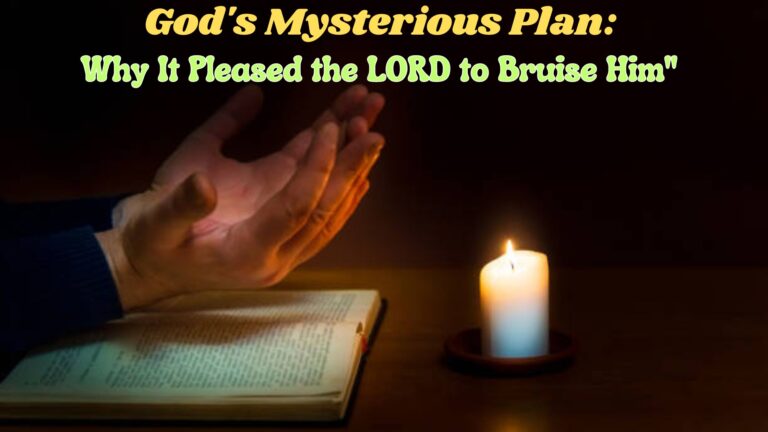Introduction
Insights from Matthew 16:19 : Heaven’s Keys and Earth’s Authority

In the New Testament, Matthew 16:19 occupies a crucial position, offering profound insights into spiritual authority and the dynamic relationship between Heaven and Earth. Jesus’ declaration, “I will bestow upon you the keys to the kingdom of Heaven; whatsoever you bind or loose on Earth shall be bound or loosed in Heaven,” has sparked extensive theological discussion and holds immense significance for Christian faith and practice.
What is the connection between heaven’s keys and earth’s authority in Matthew 16:19?
In Matthew 16:19, Jesus establishes a profound connection between the keys of heaven and the authority exercised on earth through his words to Peter. The passage reads, “I will give you the keys of the kingdom of heaven; whatever you bind on earth will be bound in heaven, and whatever you loose on earth will be loosed in heaven.” Let’s delve deeper into the significance of this statement.
Keys of the Kingdom of Heaven
The “keys” symbolize authority and power. In ancient times, keys were more than just practical objects; they represented the ability to open and close doors, granting access to specific places or resources. By giving Peter the “keys of the kingdom of heaven,” Jesus entrusted him with significant authority within the early Church.
Binding and Loosing
The terms “bind” and “loose” were frequently used in Jewish legal language. They referred to the authority to make binding decisions, such as permitting or prohibiting certain actions. In this context, “binding” and “loosing” can have several meanings:
- Doctrinal Authority: The power to make authoritative decisions on matters of faith and practice, shaping the beliefs and teachings of the Church.
- Disciplinary Authority: The ability to enforce discipline within the Church, including decisions regarding the inclusion or exclusion of individuals from the community.
Connection Between Heaven and Earth
Jesus’ statement highlights the profound link between the actions taken by Peter (and by extension, the Church) on earth and their heavenly implications. It suggests that the decisions made by the Church, guided by the Holy Spirit, are recognized and honored in heaven. This connection emphasizes several important aspects:
- Divine Endorsement: The actions of the Church, when aligned with divine will, are endorsed by heaven, indicating divine authority and backing for the Church’s decisions.
- Responsibility: The Church bears a significant responsibility to act wisely and justly, understanding that its actions have eternal consequences.
- Unity with Heaven: The Church is not operating independently but is in concert with heavenly authority, ensuring that its decisions are not arbitrary but aligned with God’s will.
Interpretations Across Christian Traditions
Different Christian traditions interpret this passage in various ways:
- Roman Catholic Interpretation: The passage is seen as a foundational text for the papacy. Peter is viewed as the first pope, and the authority given to him is believed to be passed down to his successors.
- Orthodox Interpretation: While acknowledging Peter’s special role, the Orthodox Church emphasizes the collective authority of all bishops and the ecumenical councils in making decisions.
- Protestant Interpretation: Many Protestants interpret the passage as granting authority to the Church as a whole rather than to an individual leader, emphasizing the priesthood of all believers.
In summary, the connection between heaven’s keys and earth’s authority in Matthew 16:19 revolves around the authority entrusted to Peter and the Church to make binding decisions on earth that are endorsed in heaven. This authority encompasses both doctrinal and disciplinary matters, highlighting a profound responsibility and a direct link between the Church’s actions and divine will.
Why did Jesus give Peter the keys of the kingdom in Matthew 16:19?
In Matthew 16:19, Jesus bestowed upon Peter the keys of the kingdom for several pivotal reasons. These reasons find their roots in the context of Peter’s faith, his role among the disciples, and the establishment of the Church. Let’s delve deeper into each of these factors:

1. Recognition of Peter’s Confession:
Peter had just made a profound declaration of faith, acknowledging Jesus as “the Messiah, the Son of the living God” (Matthew 16:16). This confession demonstrated Peter’s deep understanding and belief in Jesus’ true identity. In response to this confession, Jesus bestowed upon Peter a special role and authority.
2. Foundation of the Church:
Jesus’ statement, “You are Peter, and on this rock I will build my church” (Matthew 16:18), holds significant meaning. The name “Peter” (Petros in Greek) means “rock,” and Jesus is indicating that Peter’s faith and his confession are foundational to the Church. By giving Peter the keys, Jesus established him as a foundational leader in the early Christian community.
3. Authority to Bind and Loose:
The keys symbolize authority, and Jesus is giving Peter the authority to “bind and loose” (Matthew 16:19). This terminology was familiar in Jewish legal language, meaning to forbid and permit or make binding decisions. Jesus is entrusting Peter with the authority to make decisions recognized and upheld by heaven, crucial for the governance and guidance of the early Church.
4. Leadership Role:
Peter is often seen as the leader among the apostles, frequently speaking on behalf of the group and playing a prominent role in the early Church. Jesus giving the keys to Peter signifies recognition of his leadership role and empowers him to lead and guide the Church.
5. Symbol of Unity and Authority:
By giving Peter the keys, Jesus also creates a symbol of unity and centralized authority within the Church. This authority is not just for Peter alone but is understood to be part of the ongoing leadership of the Church. Different Christian traditions interpret this passage in ways that emphasize the continuity of authority through apostolic succession or collective leadership.
Interpretations Across Traditions:
Different Christian traditions understand the significance of Jesus giving Peter the keys in various ways:
- Roman Catholic Interpretation: This passage is seen as foundational for the papacy, with Peter considered the first pope. The authority given to him is believed to be passed down to his successors, ensuring continuous and unified leadership in the Church.
- Orthodox Interpretation: The Orthodox Church acknowledges Peter’s unique role but emphasizes the collective authority of all bishops and the ecumenical councils. Peter’s role is viewed as “first among equals” rather than having supreme authority.
- Protestant Interpretation: Many Protestant traditions view this passage as granting authority to the Church as a whole, rather than an individual leader. They emphasize the collective priesthood of all believers and the role of the entire Christian community in binding and loosing.
In summary, Jesus gave Peter the keys of the kingdom in Matthew 16:19 to recognize his faith, establish him as a foundational leader, and entrust him with authority for the governance of the Church. This act underscores the importance of Peter’s role in the early Christian community and serves as a symbol of unity and authoritative guidance for the Church.
How do the concepts in Matthew 16:19 apply to modern-day
In Matthew 16:19, Jesus bestows upon Peter the “keys to the kingdom of heaven,” symbolizing authority and the ability to make binding and loosing decisions on earth that will be recognized in heaven. This verse, interpreted diversely throughout Christian history, holds modern relevance in several ways:

- Church Authority: Traditionally, this verse has been seen as establishing the authority of church leaders, especially in the Roman Catholic tradition, where it supports the Pope’s primacy as Peter’s successor. In the modern context, it can be understood as the church’s authority to govern, make doctrinal decisions, and provide spiritual guidance to its members.
- Personal Accountability: The concept of binding and loosing can be interpreted as a call for individual responsibility in spiritual lives and moral choices. Modern Christians are encouraged to make decisions in alignment with Jesus’ teachings, reflecting their faith and values in their actions.
- Community Support: Binding and loosing can extend to the communal aspect of Christianity, where church communities offer support and accountability to each other. This can be manifested in church discipline, community support, and collective decision-making. Modern churches can create supportive environments to foster growth and accountability among members.
- Prayer and Intervention: Some interpretations emphasize the power of prayer in binding and loosing. In contemporary practice, this means believers seek divine intervention in various life aspects through prayer, believing in the impact of their prayers on both earthly and spiritual realms.
- Social Justice Advocacy: Modern applications can extend to addressing social and ethical issues. Believers might interpret this verse as a mandate to advocate for justice, mercy, and other kingdom values in society. They may engage in addressing issues like poverty, injustice, and societal problems, believing that their actions have temporal and eternal significance.
- Personal Transformation: On a personal level, binding and loosing can represent the power to overcome personal struggles and sins. Modern Christians might find encouragement in this verse to pursue personal transformation through faith, prayer, and community support, believing that their efforts in self-improvement have spiritual consequences.
Overall, Matthew 16:19 underscores the significant spiritual authority and responsibility entrusted to believers, both individually and collectively. This authority can manifest in various ways, from church governance and doctrinal decisions to personal spiritual growth and societal impact.
Conclusion
In Matthew 16:19, a profound truth is revealed regarding the intersection of heavenly authority and earthly action. This verse challenges believers to acknowledge the spiritual authority bestowed upon them and to align their actions with the purposes of God’s kingdom. In both personal faith journeys and church leadership roles, the keys of the kingdom symbolize a divine partnership between Heaven and Earth, reminding believers of their significant role in advancing God’s plans.
References
- Bible Gateway. (n.d.). Matthew 16:19. Retrieved from Bible Gateway
- Got Questions. (n.d.). What are the keys of the kingdom? Retrieved from Got Questions
- Catholic Answers. (n.d.). What are the ‘keys of the kingdom’? Retrieved from Catholic Answers
- Blue Letter Bible. (n.d.). Binding and loosing. Retrieved from Blue Letter Bible
- Christianity Today. (n.d.). Understanding the keys of the kingdom. Retrieved from Christianity Today








